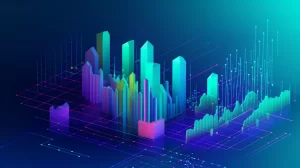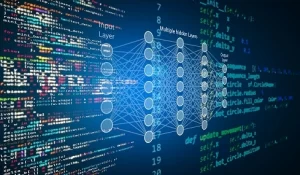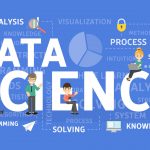How to Get Into Data Science with an Economics Degree
In today’s data-driven world, Data Science with Economics has emerged as a highly sought-after field. If you hold a degree in economics and are looking to transition into data science, you’re in a strong position.
Your background in economics provides a solid foundation for understanding data and analytical methods. Here’s how you can leverage your economics degree to break into data science and excel in this exciting field.
Understand the Intersection of Economics and Data Science
Economics and data science share a common goal: analyzing data to uncover insights and make informed decisions. Economists are skilled in statistical analysis, hypothesis testing, and data interpretation all of which are crucial in data science.
Recognize that your existing skills in econometrics and quantitative analysis will be beneficial as you delve deeper into data science.
Build on Your Statistical and Analytical Skills
A strong grasp of statistics is essential in data science. Economics programs often include courses in statistical methods, regression analysis, and data interpretation.
To transition smoothly into data science, enhance these skills by learning advanced statistical techniques and tools used in data science, such as machine learning algorithms and predictive modeling.
Acquire Programming Skills
While your economics degree provides a solid analytical foundation, data science requires proficiency in programming. Learning languages such as Python or R is crucial.
Python is widely used for its simplicity and extensive libraries like Pandas and Scikit-learn, which are essential for data manipulation and machine learning.
R is also valuable, especially for statistical analysis and data visualization. Online courses and coding boot camps can help you develop these programming skills.
Gain Experience with Data Analysis Tools
Familiarize yourself with data analysis tools and software commonly used in data science. Tools like SQL for database management, Tableau for data visualization, and Excel for data manipulation are essential. Many online resources and tutorials are available to help you get hands-on experience with these tools.
Pursue Additional Education or Certifications
Consider enrolling in a specialized data science program or earning certifications to bolster your qualifications. The University of Faisalabad (TUF) offers programs that can bridge the gap between economics and data science.
Look for courses in data science, machine learning, and big data analytics. Certifications from platforms like Coursera or edX can also enhance your skills and make your resume stand out.
Work on Real-World Projects
Hands-on experience is invaluable. Start by working on real-world projects or datasets. Participating in data science competitions on platforms like Kaggle can help you apply your skills and gain practical experience.
You can also collaborate with peers or contribute to open-source projects to build a portfolio that showcases your capabilities.
Network with Data Science Professionals
Networking can open doors to opportunities in data science. Attend industry conferences, join data science meetups, and participate in online forums.
Connecting with professionals in the field can provide valuable insights and potential job leads. Additionally, consider reaching out to alumni from your economics program who have successfully transitioned into data science.
Tailor Your Resume and Cover Letter
When applying for data science positions, highlight your economics background and how it complements your data science skills. Emphasize your analytical abilities, statistical knowledge, and any relevant projects or coursework. Tailor your resume and cover letter to showcase your unique blend of skills and experience.
Prepare for Data Science Interviews
Data science interviews often include technical questions, case studies, and problem-solving scenarios. Prepare by practicing coding challenges, reviewing key concepts in data analysis, and working on case studies.
Demonstrating your ability to apply your economics knowledge to real-world data problems will set you apart from other candidates.
Stay Updated with Industry Trends
Data science is a rapidly evolving field. Stay informed about the latest trends, tools, and technologies. Subscribe to industry blogs, follow thought leaders on social media, and continue learning to keep your skills relevant and up-to-date.





